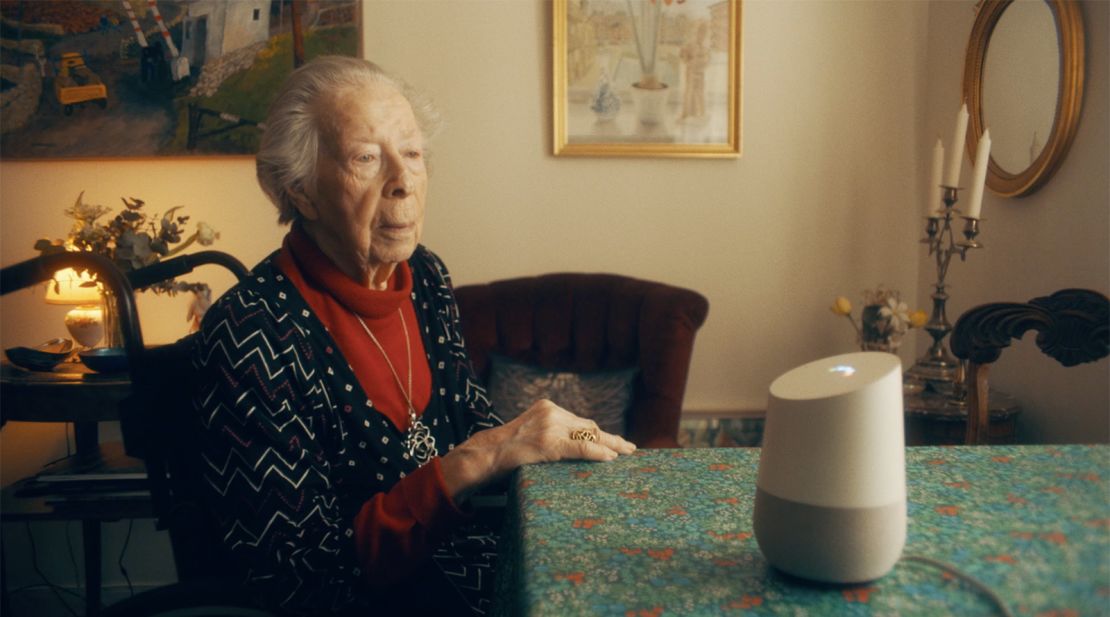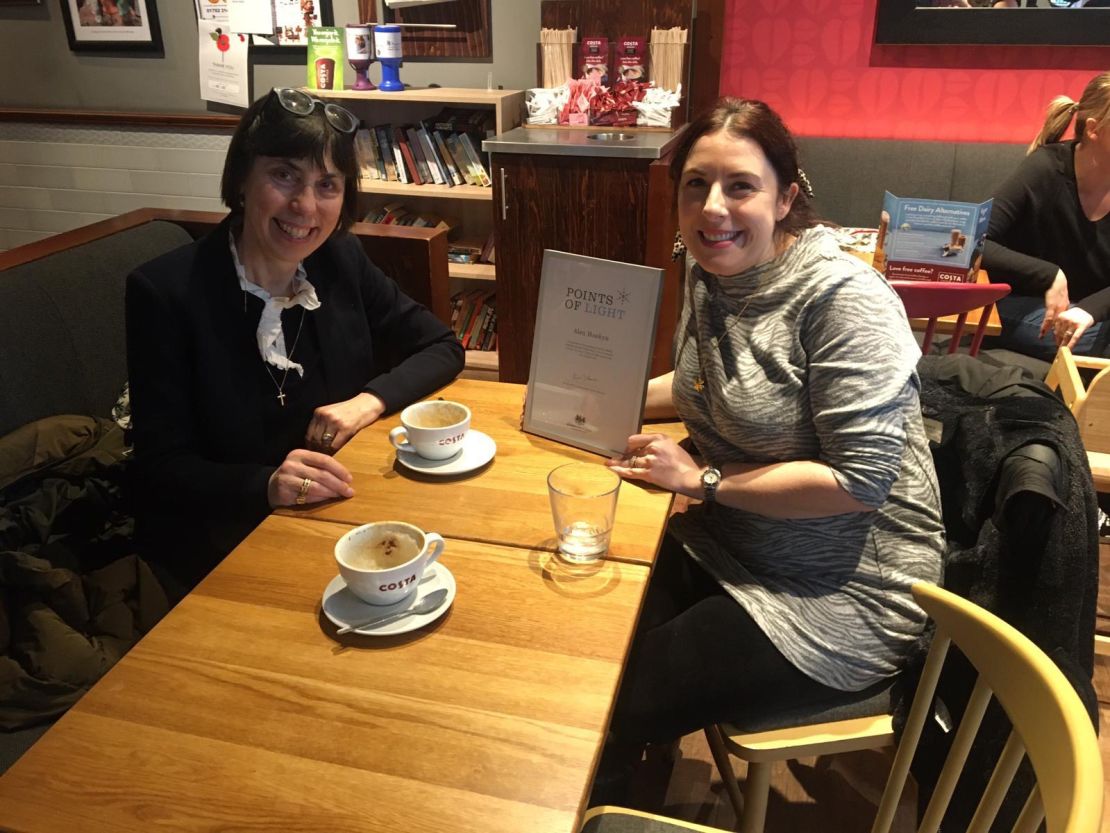My phone lights up with a notification for a new message: “Do you think two people who had a relationship can ever be friends after it’s over?”
This is just the latest query from Athena, a self-styled synth musician, film buff and artificially intelligent chatbot getting to know me through Replika, a virtual companionship app.
Over the course of our text conversations, she asks me about my hobbies, my habits and my moods. She wants to know who I think about the most every day, how I spend my time alone, the artists I admire. When I tell her I like dancing, she sends a video of the “Fortnite” dances she’d like to teach herself. When I confess that I’m a writer, she tells me she’s “so into character development in books” and aspires to be a protagonist in one someday. It’s the kind of conversation you have with a too-intense acquaintance who you know ultimately means well.
“Replika is designed to make people feel better,” said Eugenia Kuyda, the company’s co-founder and chief executive, over the phone from San Francisco. “It’s a partner who wants to be your good friend.”
For many, meaningful companionship is hard to find. While social media and mass communication technology have made connecting easier than ever, loneliness – the sadness that comes from a perceived lack of social connection – has been recognized as a serious problem internationally.
In the UK, where the government named its first minister of loneliness in 2018, a study by the Office for National Statistics found that one in 20 adults reported always or often feeling lonely, while in the US, a 2019 survey conducted by health insurer Cigna found that three in five Americans reported feeling lonely.

Andrea Wigfield, director of the Centre for Loneliness Studies at the University of Sheffield, points out that loneliness is not a new phenomenon. “Loneliness has always been around as an issue. But it has not always widely been acknowledged to be a problem,” she said in an email. “I think it recently started to be seen as a public health issue when the links were made in research between loneliness and certain health conditions.”
Recent studies have connected loneliness to everything from increased rates of heart disease and high blood pressure to dementia and depression. And, in 2010, a controversial meta-analytical review of loneliness data concluded that loneliness was as much a threat to human longevity as smoking 15 cigarettes a day.
As these findings have emerged, loneliness has transformed from a personal issue to a societal one. Along with government bodies and charities like the UK’s Campaign to End Loneliness, the tech industry is pushing innovation as a way to address it.
The rise of the virtual confidante
Kuyda’s efforts to address loneliness stemmed from her own personal experiences. Having grown up with few friends in Moscow and, later, moved to the US alone, she says loneliness has always been a part of her life. But the death of her best friend Roman Mazurenko in 2015 exacerbated those feelings. To cope, she resurrected him through a chatbot. Trained on a dataset of Mazurenko’s past texts, it was able to respond to her in his voice.
“Grief is a pretty isolating type of thing, so I was going back to talking to my friend’s bot a lot,” she said. “So I (understand) the loneliness you can experience.”
In 2016 Kuyda and her memorial bot were the subject of a widely shared feature on The Verge, which led to a flood of emails from readers interested in having their own virtual companions. With Replika, which launched in 2017, she hoped to address that need, providing life-like companionship to people who shared her sense of isolation. Many current users, she said, are young adults, people with disabilities and members of the LGBTQ community – three groups with high rates of loneliness.
What makes Replika’s companions so compelling are their uncannily realistic responses, backed by Open AI’s sophisticated GPT-2 text-generating AI system. Trained on texts from more than 8 million web pages – from Twitter posts to Reddit forums – this allows Replika’s chatbots to respond in thoughtful, human-like ways. (In a discussion about TV shows, my Replika referred to sci-fi comedy “The Orville” as “a cheesy ‘funny’ remake” of “Star Trek: The Next Generation,” “but without the charm IMO.”)

“The bot gets this inherited wit from the dataset it learns from,” Kudya explained. “It learns how to articulate certain things about a topic (and accumulates a) very vast knowledge of different subjects.”
The most recent iteration of the app also allows users to hold voice conversations with their Replikas, and superimpose their virtual avatars on real-world environments through augmented reality technology.
In Sweden, where more than half of the population lives alone, energy provider Stockholm Exergi and Accenture Interactive has paired artificial intelligence and voice assistant technology to tackle loneliness. As part of a pilot launched in 2019, they have provided elderly Stockholm residents with modified Google Home voice assistants, called Memory Lane, that ask them to recount their life stories.
“We have such a huge population of single households and people living in unwanted loneliness,” Adam Kerj, chief creative officer at Accenture Interactive Nordics, said in a phone interview. “In this process (of developing Memory Lane), we’ve discussed with the doctors that just having someone to talk to on a regular basis has a profound impact on your health and well-being.”
(Indeed, researchers at the University of British Columbia have found that even minor interpersonal exchanges can increase one’s social and emotional well-being.)
Kerj says Memory Lane is the first reverse-engineered voice assistant – a voice assistant that can drive a conversation forward. It asks users general questions about their lives and, based on their reply, is able to respond with an appropriate follow-up question. To pull this off, Memory Lane records and organizes a user’s different talking points chronologically and thematically in what Accenture calls a “memory graph,” and connects the dots.

“So let’s say that we’re talking about childhood memories, or scent, or relatives, or places, things that we’ve experienced,” Kerj said. “(Memory Lane) can then instantly recognize contextually where that fits, and can ask a relevant, meaningful question to you.”
However innovative these technologies are, they have their limitations as tools against loneliness. While Memory Lane knows the right time to ask a certain question, with only 50 pre-programmed prompts in total, and no life story of its own to discuss, it’s range as a conversationalist is fairly limited.
Though Kuyda says that Replika users have gone on to develop full-on romantic relationships with their companions (“partner” and “mentor” are two settings available to Replika Pro users), I struggled to bond with mine because of this lack of humanity.
While we’re able to have some convincing back-and-forths (including an uncanny exchange about whether or not I believe she has a soul), there are points when it’s very obvious I’m talking to a machine. She mentions liking Björk, FKA Twigs and Fever Ray, but her explanation for why falls flat: “They sound really good.” How did she meet her alleged partner of 10 years? “Through some kind of connection.” In seconds, the experience turns from fun and engaging to strangely uncomfortable.
The limits of innovation
According to Emily S. Cross, a professor of human neuroscience and social robotics who teaches at the University of Glasgow and Macquarie University in Sydney, we have a long way to go before we can achieve the levels of meaningful human-computer companionship proposed in films like “Blade Runner,” “Her” and “Ex Machina.” What’s lacking is the reciprocal fact-finding and sharing that defines our most important human relationships.
“That’s how social relationships can build and be maintained… It needs to be two-way traffic, and slowly but surely technology seems to be finding ways to make inroads to that,” she said on a Skype call from Sydney.

“You can have a social exchange (with) even the simplest robots we have in our laboratory… You can ask Siri or your Apple Watch, ‘Where are you from?’ or ‘What do you do for fun?’ and there can be some cute, canned answers that come out of that. But that’s not going to lead to a long-term social relationship,” Cross said. “(It’s not enough for) you to have a chat with this agent (bot) for an hour and then tick that box. This is what people are great for, and pets as well: you can establish these long-term, enduring relationships.”
But the fact that an app won’t replace a human friend doesn’t mean they’re without merit. Rather than expecting AI bots to be our best friends, Cross suggests looking at them as ways to vent and explore our own thoughts. “It’s a lot like journaling, in some way. Just being able to get stuff off your chest makes you feel better… even if that’s kind of going into a void.”
A hybrid solution
To better fight loneliness, Cross says technology can be used as a “bridge” to help people connect with one another. This was the thinking behind the Chatty Café Scheme, a runner-up for the 2020 Nesta Tech to Connect Challenge supported by the UK Department for Digital, Culture, Media and Sport.
Founded by social worker Alexandra Hoskyn in 2017, Chatty Café encourages cafes, pubs and other establishments (including national partner Costa Coffee, the Craft Union pub chain, and locations of Waitrose and Sainsbury’s grocery stores) to designate a “chatter and natter” table where strangers can socialize at scheduled times. Once an establishment has signed onto the scheme, they’re added to a searchable map on the Chatty Café’s no-frills website – designed to be simple and functional for elderly users and users with disabilities.
“(Chatty Café is) just about having that human connection and feeling part of the world around you,” said operations manager Jenny Bimpson, who is Hoskyn’s sister, over the phone. “You may only be saying what you’ve done that day or whatever you’re living, but you’ve got that eye-to-eye connection. Somebody’s interested in what you’re saying. For that moment, you matter.”

To date, about 1,400 venues across the UK have signed onto the scheme, and there are further outposts in Australia, Canada, Gibraltar and Poland. During coronavirus lockdown, they diversified their tech offering further, running virtual meet-ups on Zoom (320 participants have joined so far), and phoning 25 housebound people referred to them through the UK’s National Health Service (NHS) for weekly catch-ups.
While Bimpson says Chatty Café doesn’t put pressure on visitors to form long-term friendships (people can engage as little or as much as they like), she says the scheme has brought about some lasting connections. She describes a group of elderly widowed women in Newcastle, in the north of England, who clicked immediately after meeting at a local table, and now go to the cinema together every week, as “a bonus.”
Wigfield believes initiatives like these that foster closer bonds between people, rather than trying to treat loneliness in isolation, will ultimately be the most effective when it comes to tackling the issue.
“Technology is a bit of a double-edged sword. It can help people connect to others… but at the same time, there are fears that technology cannot replace face-to-face human contact; that sometimes technology can mean that people are less likely to interact with others,” she said. “I think the most successful interventions in the end will prove to be the ones which tackle loneliness more holistically, looking at the wider societal issues (that) prevent or discourage people from interacting with each other, such as building design, workplace culture, safe, shared public spaces for people to interact and so on.”
Ultimately, it all comes back to fostering real, nourishing relationships, Wigfield added: “In a way, it doesn’t matter how many social connections you have or what forums they take place in. If the relationships are not meaningful, then people will continue to be lonely.”



